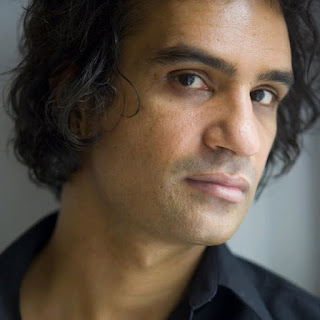Nadeem Aslam FRSL (born in 11 July 1966 in Gujranwala, Pakistan) is a prize-winning British Pakistani writer. His presentation novel, Season of the Rainbirds, won the Betty Trask and the Author's Club First Novel Award. His widely praised second novel Maps for Lost Lovers won Encore Award and Kiriyama Prize; it was shortlisted for International Dublin Literary Award, among others. Colm Tóibín depicted him as "a standout amongst the most energizing and genuine British authors composing now.
In a period when such huge numbers of contemporary journalists are related with the faction of superstar, with instanteous achievement and with rushed, also heavy, progresses, Aslam appears to be content with the more extended view, and with quality instead of amount.
Aslam still works out his first drafts relentlessly in longhand; his second novel assumed control over 10 years to finish, and he savagely alters and pares down his own work to the degree that occasionally a few sentences are altogether that are left of 100 pages of original copy. There is a feeling of craftsmanship about his composition, and a tedious tender loving care that is uncommon in an ongoing fiction. As Aslam has put it of his second novel:
"I needed each section of Maps for Lost Lovers to resemble a Persian little. In these miniatures, a little bit of paper – no greater than a sheet of A4 – holds a monstrous abundance of excellence, shading and detail. Trees have leaves each impeccably rendered. Blossoms are minutes old and the tilework of the castles and mosques is affectionately point by point. That was the point in Maps..."
A similar thing may be said of his first novel, Season of the Rainbirds (1993), the front of the primary version of which is outlined by a scaled down of a tree whereupon each leaf is painstakingly depicted. In the opening pages of the novel we witness a household scene through the aggregate awareness of a mysterious gathering of kids in a small town in Pakistan. This world has a guiltlessness and effortlessness about it which is, actually in spots, highly contrasting: "Men with dark whiskers are to be stayed away from, while those with white facial hair are benevolent and delicate". However what strikes the peruser most is the staggering scrupulousness in these multifaceted, fragile passages: the guts of fish, rises in a paperweight, the cleaning of a wedding band with turmeric. The books occasions are consolidated into only a couple of days, and Aslam draws us into a universe of unremarkable ordinary ceremonies and articles where details are everything. What influences these articles and customs to resonate with a more broad criticalness is their setting inside a scene of more extensive social, religious and political clashes. Integral to the contention of Season of the Rainbirds is the unforeseen return of a sackful of letters; mail which vanished in a train crash nearly 19 years back. Azhar, the District Commissioner, is in charge of researching the puzzle, and the deadly trail it conceivably hides. In any case, it is simply the outrage of Azhar, and his issue with a Christian lady, that worries the town and undermines to eclipse the case. This plot inside a plot says a lot about Aslam's composition style, which ordinarily continues sideways, and without the conspicuous signposts of all the more plainly issue-based fiction.
Nadeem Aslam was conceived in Pakistan in 1966 and moved to Britain at age 14. His family left Pakistan to escape President Zia's routine.
His epic Maps for Lost Lovers, victor of the Kuriyama Prize, took him over 10 years to finish. Aslam has expressed that the principal section alone took five years to finish, and that the accompanying story in the book took seven months to finish before dismissing it. Toward the end, he kept just a single sentence of the seventy pages composed. Aslam's most recent novel, The Wasted Vigil, was distributed by Alfred A. Knopf in September, 2008. It is set in Afghanistan. He headed out to Afghanistan amid the composition of the book yet had never visited the nation composing the primary draft. On eleventh February 2011, it was short-recorded for the Warwick Prize For Writing.
His compositions have been contrasted with those by Chinua Achebe, Chimamanda Ngozi Adichie and Kiran Desai and got an Encore in 2005. He composes his drafts in longhand and lean towards outrageous separation when working.
Nadeem Aslam was a very long time into his second novel when the 11 September assaults occurred. "Numerous essayists said the books they were composing were presently useless," he reviews. Martin Amis, for one, felt his work in advancement had been lessened to a "pitiable prattle". Yet, Aslam's disheartened response to 9/11 was one of acknowledgment. "I thought, that is Maps for Lost Lovers – that is the book I'm composing."
The connection may appear to be dubious to a novel set numerous miles from the twin towers or Bin Laden's nest, in a nearly covered urban network of Pakistani vagrants and their posterity in the north of England, where Aslam grew up from the age of 14. The tale was relatively peaceful in its following of the seasons, with riffs on jazz, painting and fabulous moths. Every section was as minutely adorned as the Persian and Mughal miniatures Aslam has in all around thumbed volumes on his end table. Be that as it may, the plot turns on a supposed respect slaughtering, as an unforgiving brand of Islam grabs hold. In his view, or more for ladies, "we were encountering low-level September 11s consistently."


0 Comments